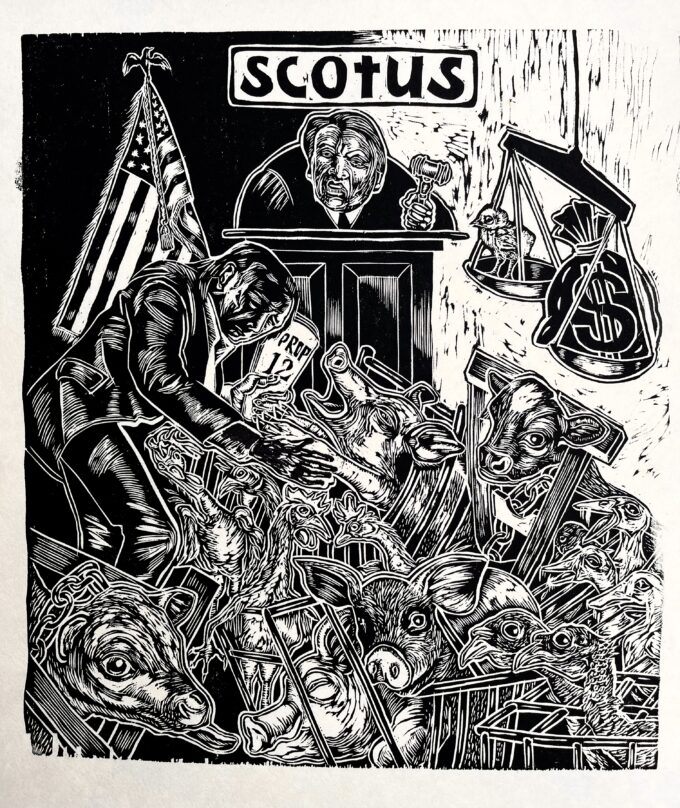Will SCOTUS Undo Animal Cruelty Laws?

SCOTUS by Sue Coe.
Laws in our nation are supposed to reflect societal values, which include preventing injustice and needless cruelty, but our legal system is too often used to protect powerful interests at the expense of the vulnerable. Among the most abused creatures on earth are the billions of animals who are exploited on factory farms. Millions are packed in cages and crates barely larger than their bodies. Often, they can’t move or express their most basic natural behaviors for months or years at a time. This causes extreme suffering as well as physical and psychological disorders.
Animal cruelty on factory farms is upsetting to consumers, and it’s outside the bounds of acceptable conduct. Unfortunately, rather than making meaningful reforms, agribusiness has fought to conceal its misdeeds. They’ve enacted “ag gag” laws to prevent public discussion of their abuses and mislead consumers with marketing claims that make conditions sound better than they actually are. In spite of their deceptions, people are beginning to wake up.
Conscientious groups and individuals are joining forces to oppose factory farming and outlaw the extreme confinement of chickens, pigs and calves in cages that prevent them from turning around and stretching their limbs. Agribusiness has challenged such modest reforms for decades, including after California voters passed Proposition 2 in 2008 to give these animals more space. California voters overwhelmingly passed a similar initiative in 2018, Proposition 12, and again, agribusiness went to court to thwart the voters’ will. In an alarming development, after years of legal defeats and maneuvers, the factory farming industry has now persuaded the U.S. Supreme Court to hear its case against California’s law to restrict extreme factory farming cruelty.
While agribusiness fights in court to perpetuate animal abuse and affronts to our humanity, the people have recourse, even if our legal system fails. We can refuse to buy animal products, including those deceptively marketed as “humane.”
No comments:
Post a Comment